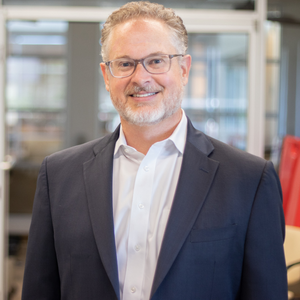CBIST Spotlight: David Harrington
Categories: ACBIS Insider, Professionals
 By Benjamin Ashley
By Benjamin Ashley
David Harrington MBA, OTR/L, CBIST began working in the field of post-acute brain injury rehabilitation in 1993. He is currently a registered and licensed occupational therapist with advanced practice in hand therapy and physical agent modalities. In addition to being a clinician, his career has included being a therapist, clinical case manager, quality manager, and director of operations. He is currently the President and Chief Operating Officer at Centre for Neuro Skills.
David studied occupational therapy at San Jose State University prior to obtaining his Masters in Business Administration at California State University in Bakersfield. He has been a Certified Brain Injury Specialist and Trainer (CBIST) since 2006.
Mr. Harrington routinely presents to medical and academic groups regarding the neurology and function of vision and perception after acquired brain injury, disease management of brain injury, and ethics in healthcare. In addition, he is an adjunct instructor at the School of Business at California State University Bakersfield where he teaches Operations Management, Business Ethics, Stakeholder Management, Business Data Analysis, Organizational Behavior, and Diversity Management.
He currently serves on the Board of Directors of the Brain Injury Association of America. He is also a member of the Kern County Concussion Consortium.
Professional publications include co-authorship of the textbook chapter Management of Residual Physical Deficits in the 3rd and 4th edition of Traumatic Brain Injury, as well as the published study, Post-Acute Traumatic Brain Injury Rehabilitation: Effects on Outcome Measures and Life Care Costs, in the Journal of Neurotrauma (May 2015, 32(10): 704-711).
His professional interests include heightening awareness of acquired brain injury and resulting sequela, improving the efficacy, efficiency, and quality of healthcare interventions, and leading better business practices in health care.
What have you seen in your organization as it pertains to younger incidences of stroke?
We used to think of stroke as an older person’s brain injury. Today, we know this to be untrue and see younger incidences of stroke across the age spectrum. At the Centre for Neuro Skills, we see stroke patients who are 50, 40, and 20 years of age, and we even see pediatric stroke patients. What needs to be addressed is the misconception that strokes don’t affect people of all ages, and education is paramount for young professionals, teachers, and parents to that effect. Being able to recognize the signs and symptoms of stroke in these younger cases is central to swift and effective treatment for their injuries. Additionally, appropriate acute care and expert post-acute rehabilitation are similarly critical. When we think about bringing people healing and coping strategies for successful lives after a stroke event, effective rehabilitation is crucial for younger stroke patients with many years ahead of them.
Are there differences in treatment approaches when working with younger stroke patients?
The principles of neuroscience remain the same for young and older persons. What does differ is the approach to their rehabilitation and the tailoring of their treatment plan to meet their specific needs. Centre for Neuro Skills provides intensive, goal-oriented, multidisciplinary programs tailored to meet each individual’s needs. As one might imagine, younger persons have varied and specific requirements that are different from, say, a 65-year-old. A 40-year-old may be seeking to return to work as a contractor or hold their baby with a non-dominant arm. A 20-year-old may need to re-learn typing skills to go back to work as a software engineer or coding expert. In each of these cases, we tailor the program to suit the needs of the individual and the life they hope to lead when they leave us. It is always a question of what skills need to be honed for maximum independence and success after stroke rehabilitation.
Why is it important to promote CBIS and CBIST certifications across organizations?
In CNS’ ecosystem of healing and recovery, we emphasize a constant, ongoing sharpening of our clinical acumen through learning and mentorship. We have a “Learn to Earn” program that promotes and advances clinicians at our organization by way of their CBIS and CBIST certifications. We believe that the more specialization and breadth of clinical knowledge each staff member holds, the better the collective acuity of the organization as a whole. It has been a mainstay of our philosophy for our entire history, and the CBIS and CBIST certifications emblemize that core tenet of our ethos.
What made you seek the certification back in 2006 and how do you use it today?
For me, CBIS certification and my subsequent CBIST achievement were a means to widen my perspective as a clinician. As an occupational therapist, I knew my subject matter very well but was more limited in my views on other fields and how they concurrently influence patient recovery. This is equally true for how a family deals with brain injury and the impact a stroke or brain injury can have in the home. Professionally today, I reference the skills of these certifications when mentoring new clinicians at CNS and when helping to devise tailored treatment plans. The well-rounded nature of the certification allows for a more holistic approach to patient rehabilitation and supports our ability to meet individual needs more efficiently and effectively. I also leverage these learnings in my professional presentations, community education, and advocacy efforts. The comprehensive nature of the certification lends itself to many practical applications in a rehabilitation setting.

